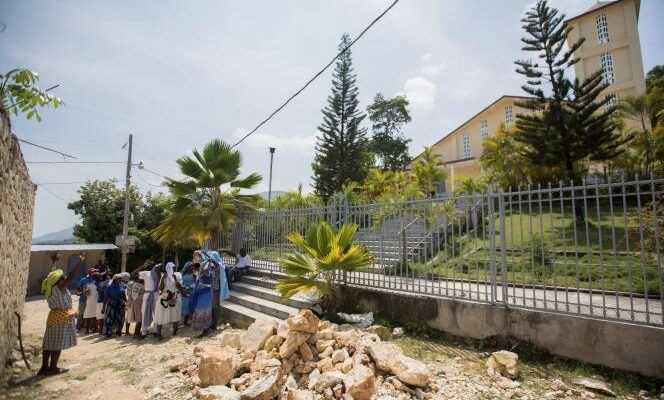It is not yet the happy outcome hoped for in Haiti, but “Three of the seven religious kidnapped on April 11 were released”Father Loudeger Mazile, spokesperson for the Bishops’ Conference of this Caribbean country in the grip of great insecurity, told Agence France-Presse (AFP) on Thursday, April 22.
“The French are not released. There are no lay people among those released ”, He said, while a total of ten people, including seven religious – five Haitians and two French – were kidnapped on April 11 in Croix-des-Bouquets, near the capital Port-au-Prince.
The group included four Haitian priests and a nun as well as two French from the west of France: Agnès Bordeau, 80, a sister from Mayenne and member of the Congregation of Providence of Pommeraye, and Father Michel Briand. , 67, a priest from Ille-et-Vilaine who has lived in Haiti for over thirty years.
Three people, family members of a Haitian priest who was not among those kidnapped, were also kidnapped. After the group’s kidnapping, the kidnappers demanded a million dollars (841,000 euros) in ransom. It is not yet clear whether any sum has been paid for the release of these three people, but the Church excludes the payment of the ransom demanded by the evildoers – “A life cannot be bought like a commodity”, insists Father Gilbert Peltro, Secretary General of the Haitian Conference of Religious.
A hostage freed after payment of the ransom
The kidnappers agreed, on April 14, to release one of the hostages after her family managed to raise the sum of 50,000 dollars (41,000 euros). Police suspect an armed gang active in the area, dubbed “400 Mawozo”, to have been at the origin of this kidnapping, according to a source in his ranks.
The event which shocked public opinion beyond the borders of the island caused a deep political crisis in the country, plagued by an upsurge in kidnappings for ransom in recent months in Port-au-Prince and in the provinces, testifying to the growing influence of armed gangs on Haitian territory.
The Catholic Church had thus launched a few days after the kidnapping a strike call to denounce the inaction of the public authorities and “The dictatorship of kidnapping” in the country, according to the president of the Haitian Bishops’ Conference, Monsignor Launey Saturné.
The President of Haiti, Jovenel Moïse, had announced to him on April 14 the resignation of the government and the appointment of a new prime minister, in order to tackle the acute problem of insecurity.
In Paris, an investigation was opened to “Kidnapping and forcible confinement in an organized group”. It was entrusted to the Central Office for the Fight against Organized Crime.
